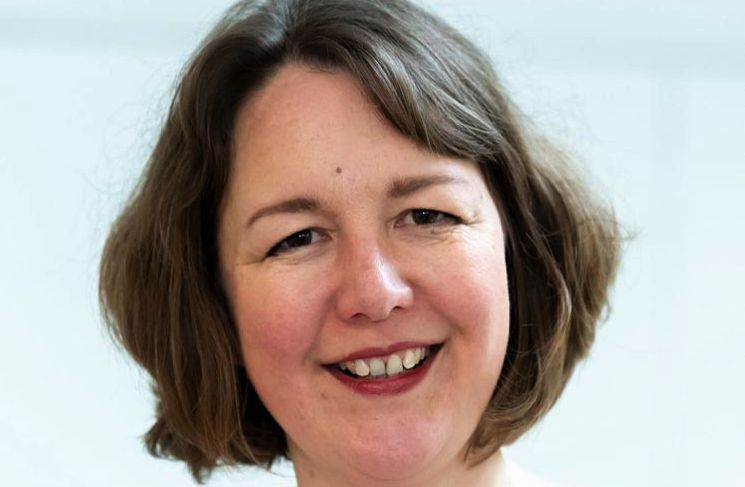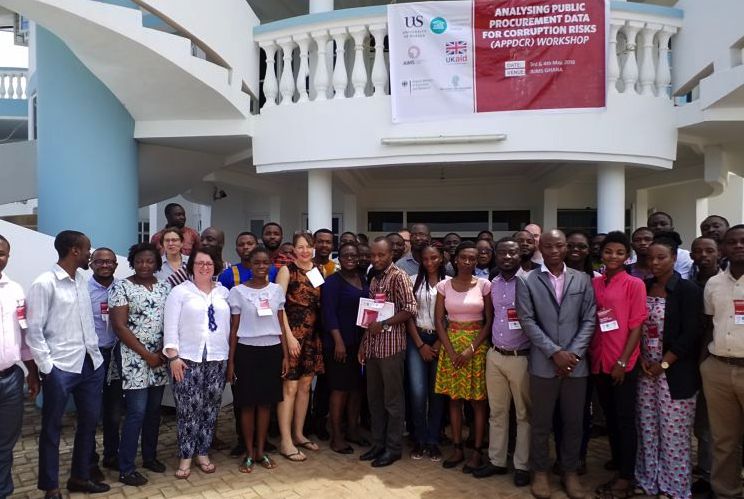Identifying the corruption risks in public spending
Professor Elizabeth David-Barrett and colleagues have created a tool to help governments, civil society organisations and donors control corruption of public funds.

Professor Elizabeth Barrett-David
Huge amounts of public money and development aid are given to countries every year to be spent on projects - from major building schemes to improving health services - that are intended to improve the lives of their citizens.
But the opportunities for governments to mismanage these funds are rife, particularly in politically unstable and low-income countries that lack the infrastructure to control spending. Globally, it’s estimated that up to 30 per cent of the value of projects is lost to corruption.
Elizabeth David-Barrett, Professor of Governance and Integrity at the University of Sussex and Director of the Centre for the Study of Corruption, has specialised in looking at corruption in public procurement practices.
Through analysis of vast datasets of public records, she and her colleagues have developed a system of identifying where the risks lie, and the potential reforms required to reduce these risks.
She says: “I’m a qualitative researcher by background and I’ve done quite a lot of work on corruption in public procurement in various settings. But, from interviewing and gathering anecdotal evidence, it was always difficult to get a sense of the scale of the corruption. Was it happening five per cent of the time or 95 per cent of the time?”
But thanks to a global demand for greater transparency, governments began to publish more data about how they were spending their money. This coincided with enhanced computer technology that gives us the processing power to analyse ‘big data’.
Red flags of risk
Supported by funding from the UK Department for International Development (DfID), David-Barrett and colleagues collated information on more than 500,000 procurement contracts published by the World Bank about aid allocated to more than 100 countries.
The result is the Curbing Corruption in Procurement project, which includes online searchable portals allowing analysis of the details of contracts awarded and those pending - and identifies red flags where processes may be improper or unfair.
David-Barrett says: “Most countries have public procurement laws that require open, free and fair competition. But if you see that there’s only one bidder for a government contract 80 per cent of the time, then you might want to question that.
“One possibility is that all the suppliers in that region know that, in order to win a contract, they have to have connections with the government. In those circumstances, other suppliers just don’t bother bidding. They know it’s rigged.”
The most egregious cases of corruption were often evident in health care, she says. In Burkina Faso a contract for malaria nets was given to a supplier that provided inferior (and cheaper) equipment than promised, and siphoned off the additional profits. The nets, being paid for by funds from an aid agency, were not impregnated with pesticide and were therefore largely ineffective.
Risks exist particularly in countries where politics are polarised, and political parties that expect to lose power soon have little interest in the long-term economy of the country, she says. “Corruption becomes a vicious cycle. The incoming government may see what the previous party in power did, and their incentive is to do the same.”
Donors setting the rules
Another key concern is partisan favouritism in which politicians influence civil servants’ decisions on public funds. David-Barrett explains: “If there is political influence over what should be a neutral bureaucratic process, that can facilitate corruption. Often the company winning the contract is related to the politician in some way, or even owned by them, or it’s providing donations to the party.”
Her analysis has shown that in circumstances where donors were able to set the rules as to how the money was used, and had greater oversight of the procurement procedure, corruption was less likely.
She explains: “Donors might say we want to look at your tender specification before you launch it, or you can only spend the money according to these rules. “When we looked at a change in the World Bank rules, we found that it reduced corruption risks across a whole set of aid money that was being given to countries.”
But, she says, there’s also a possibility that introducing partial reforms pushes the corruption to another part of the procurement process.
“There are always new risks and new ways of getting round things. When you can see patterns across huge data sets, you can monitor how the risks change in response to a new policy.”

Anti-corruption workshop in Ghana
Changing the message
Since the start of the project in 2016, the research has helped inform the UK National Anti-Corruption Strategy 2017-22, enabled countries such as Uganda and Jamaica to analyse their own procurement processes, and has given donors such as the World Bank new insights into exactly how their funds have been spent.
It has also provided a new method for civil society organisations to collect evidence of corruption risks in public procurement, which they can use to call for reform and to hold governments to account.
David-Barrett say: “We hope this tool is making procurement departments change their ways. We can assume that having better tools leads to better controls. It might not happen in a really corrupt country, but if you make it harder for people to break the rules, then you are likely to get more compliance.”
Another powerful message is to show governments the benefits of reducing corruption.
“Our most recent research has shown that, if you go to governments with an anti-corruption message, they often don’t like it. They either don’t want to admit to corruption, or they are corrupt and don’t want to give it up.
“But if you go to them with an efficiency message, it’s often more palatable, and you then get the same consequence. If they reform the procurement and make it more competitive, it will reduce corruption.”
Contact us
Research development enquiries:
researchexternal@sussex.ac.uk
Research impact enquiries:
rqi@sussex.ac.uk
Research governance enquiries:
rgoffice@sussex.ac.uk
Doctoral study enquiries:
doctoralschool@sussex.ac.uk
Undergraduate research enquiries:
undergraduate-research@sussex.ac.uk
General press enquiries:
press@sussex.ac.uk